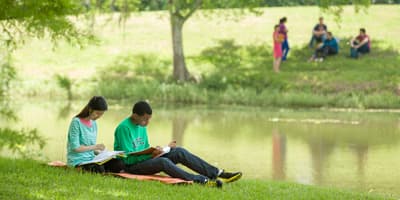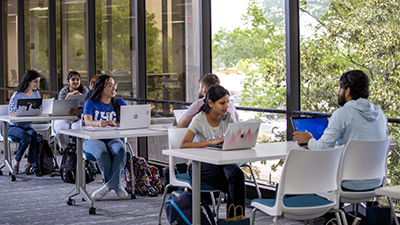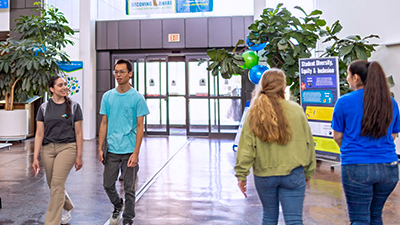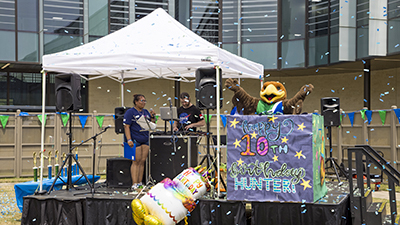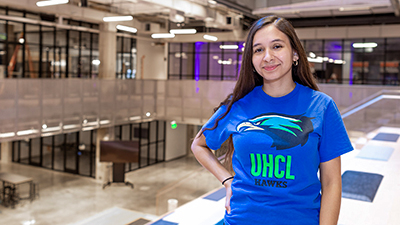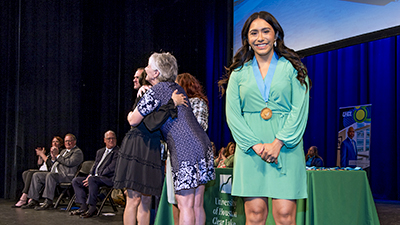Telehealth ABA World Project raises autism awareness in Liberia
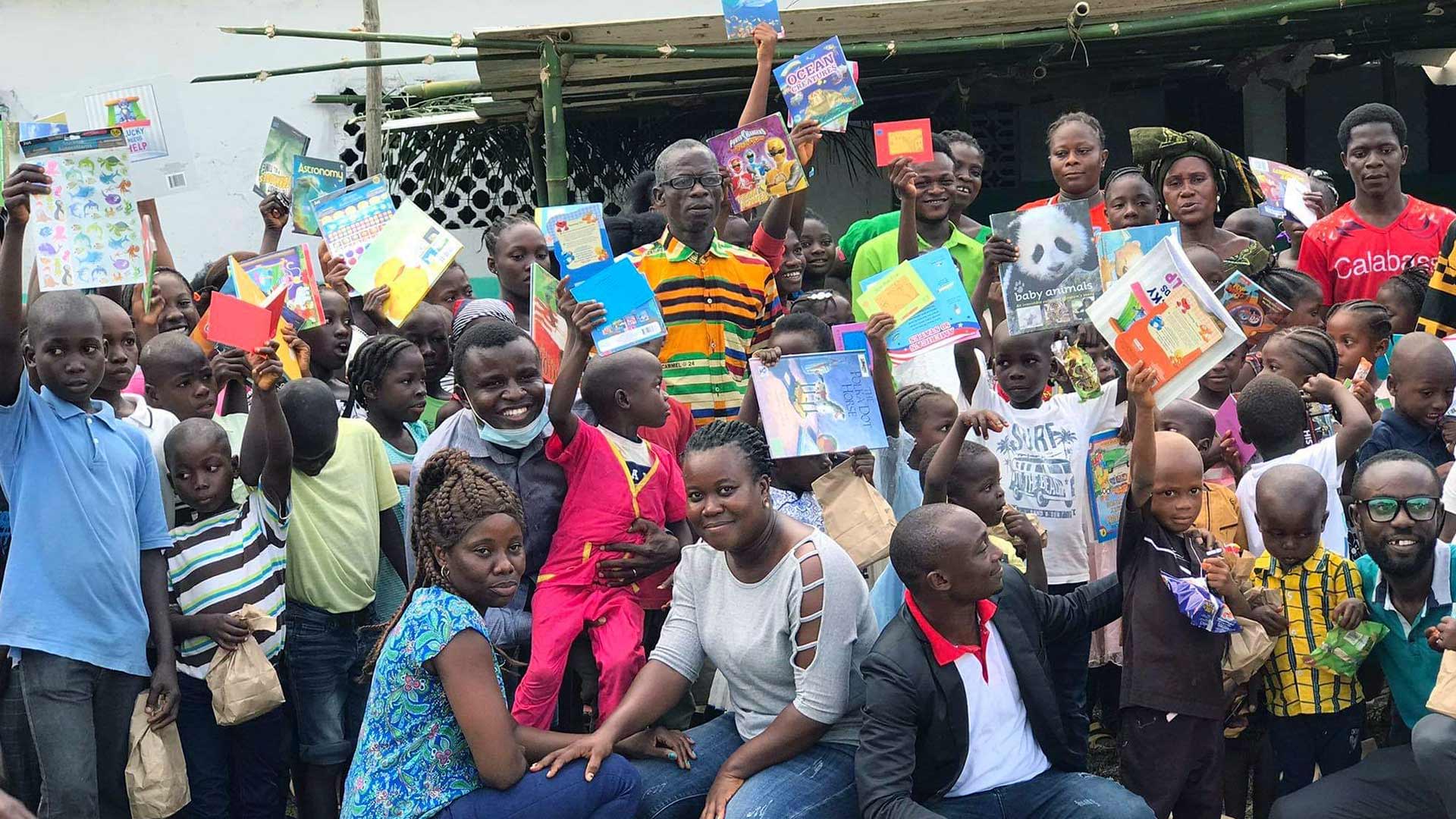
Although many American children diagnosed with autism have access to clinical services, the same is not true for all children worldwide. University of Houston-Clear Lake's Loukia Tsami, a board certified behavior analyst in the Center for Autism and Developmental Disabilities, has made it her mission to offer her expertise to families caring for children with autism around the world, most recently in Liberia.
"The biggest barriers for Liberian children with autism are the lack of access to established treatments, the absence of autism services, and the limited access to educational programs for professionals serving children with disabilities," Tsami said.
In her role as the founder of UH-Clear Lake's Telehealth ABA World Project, which aims to empower parents and professionals who work with children with disabilities around the world, Tsami has been offering behavior analysis services via telehealth to families who otherwise have no access for support or services for their child.
"Since 2016, we have been collaborating with Jeddlee Kinnii and the African Youth Peer Review Committee in various educational projects in Liberia," she said. "In 2019, we organized three fundraisers and a book drive. With the donations, and with the help of our Liberian colleagues, we were able to provide food, books and teacher trainings to two orphanages."
The trainings, she said, were via telehealth and were attended by teachers and families with the goal of empowering them with more methods to support children with autism. "The trainings demonstrate to the teachers and other community members that despite their limited access, evidence-based interventions and therapies for autism do exist," she said.
"With treatment, children with autism could have a productive life," she continued. "It's wonderful to witness the result of our interventions, and seeing that now, more people are passionate about spreading awareness and using inclusive practices to a community that may have had a misguided understanding about the causes of autism."
Tsami said that one of the challenges they experienced during this projects is the issue of access. "In Liberia, only about 9% of the population has high-speed internet, and only 12% have electricity," she explained. "This really has limited the scope of our work to promote autism awareness, because we are located in the U.S. and our services are delivered via telehealth."
Through donations, Tsami said they had been able to cover the cost of the venues to host the trainings and the transportation costs for people to come to the presentations. "But there are significant financial challenges," she said. "The combination of limited funds and access has led us to search for creative solutions. We had to identify additional methods to educate the larger community in Liberia. That's how we found out that the radio is the most commonly used, most powerful way to reach the community at large."
Tsami said she received an invitation to speak twice on OK FM, Liberia's most listened-to radio station. "We talked about autism in depth, and discussed ways to create and promote inclusive environments, particularly for individuals with disabilities," she said. "We offered guidance to families, and answered audience questions. It was wonderful to interact with the people and explain more about autism."
She said all their efforts in Liberia had been successful, but it all required time, effort and great commitment. "We recognize the need for identification of funding sources to continue and sustain the work we have started," she said.
Currently, Telehealth ABA World Project supports families in Liberia and 25 other countries around the world, all on a volunteer basis. "The biggest challenge now is to find like-minded people who are ready to support this community in a tangible way. We have begun this effort at UH-Clear Lake, but we believe the sky is the limit," she said.
To learn more about UHCL's Telehealth ABA World Project, go online.
